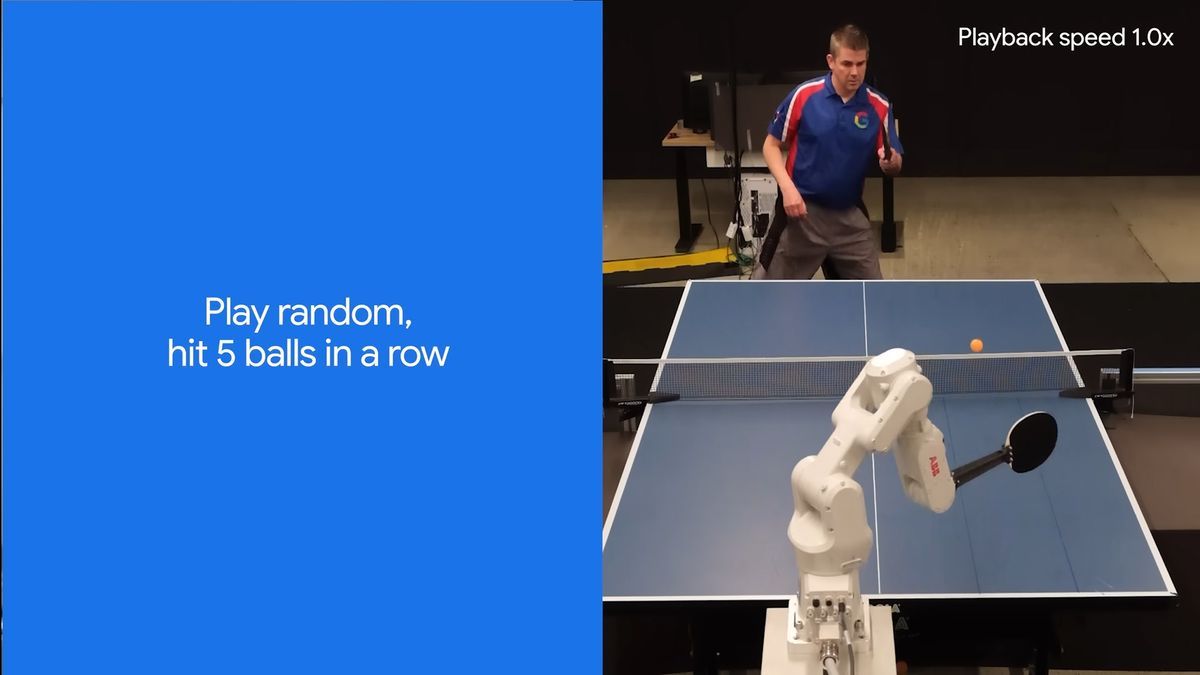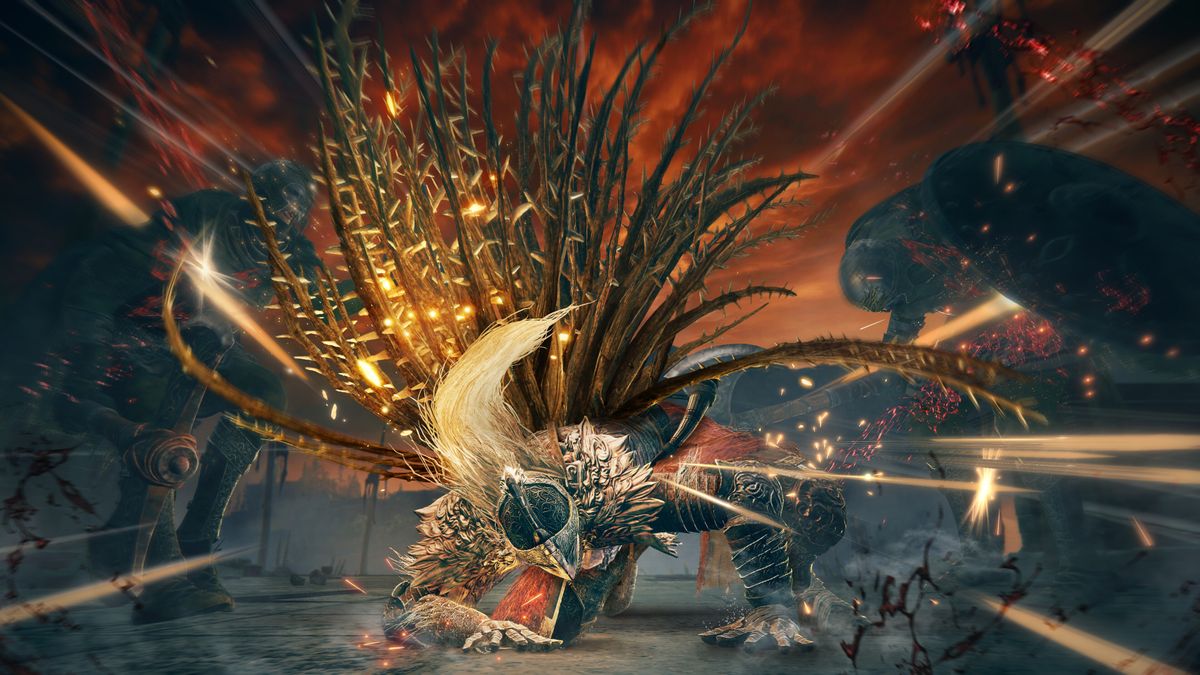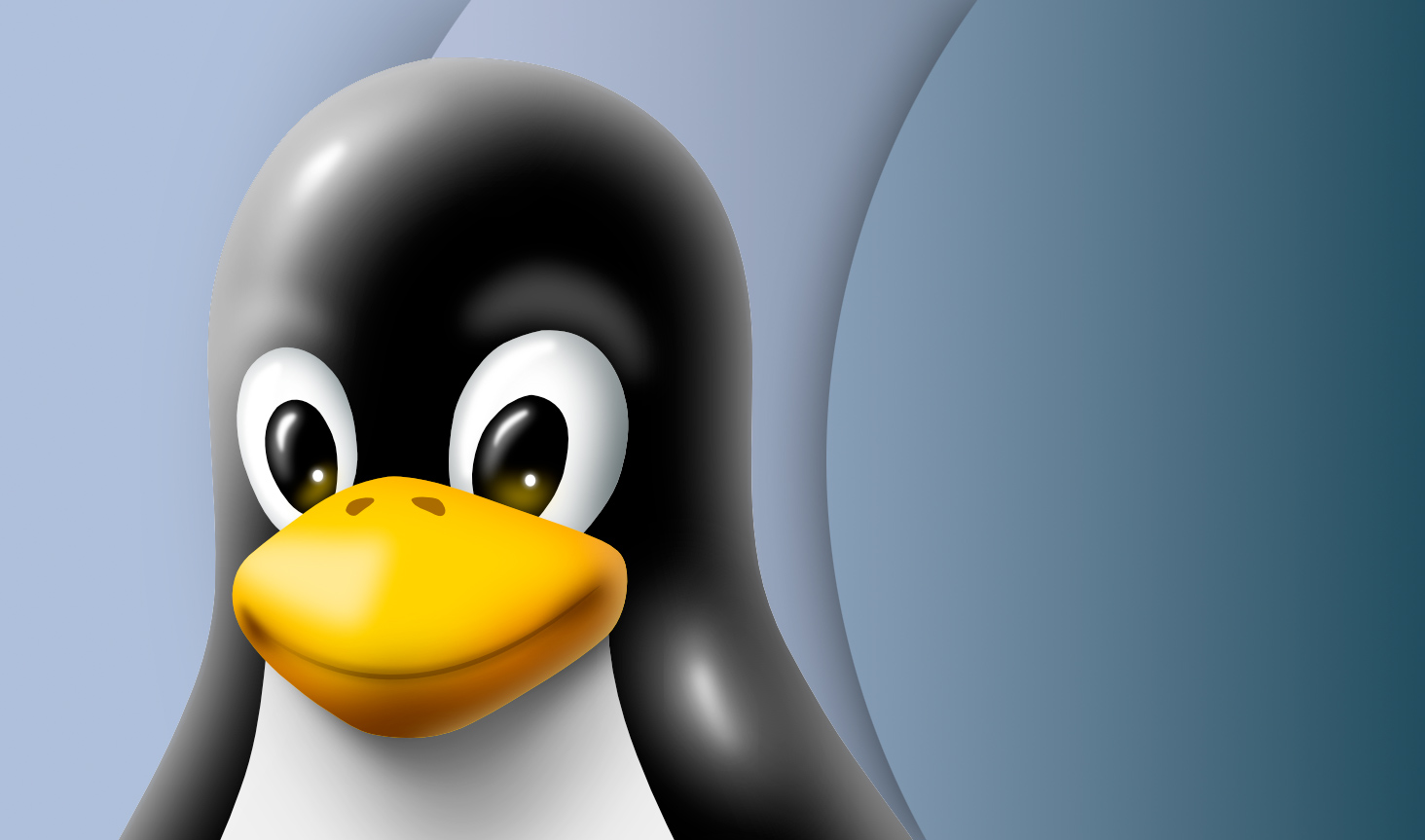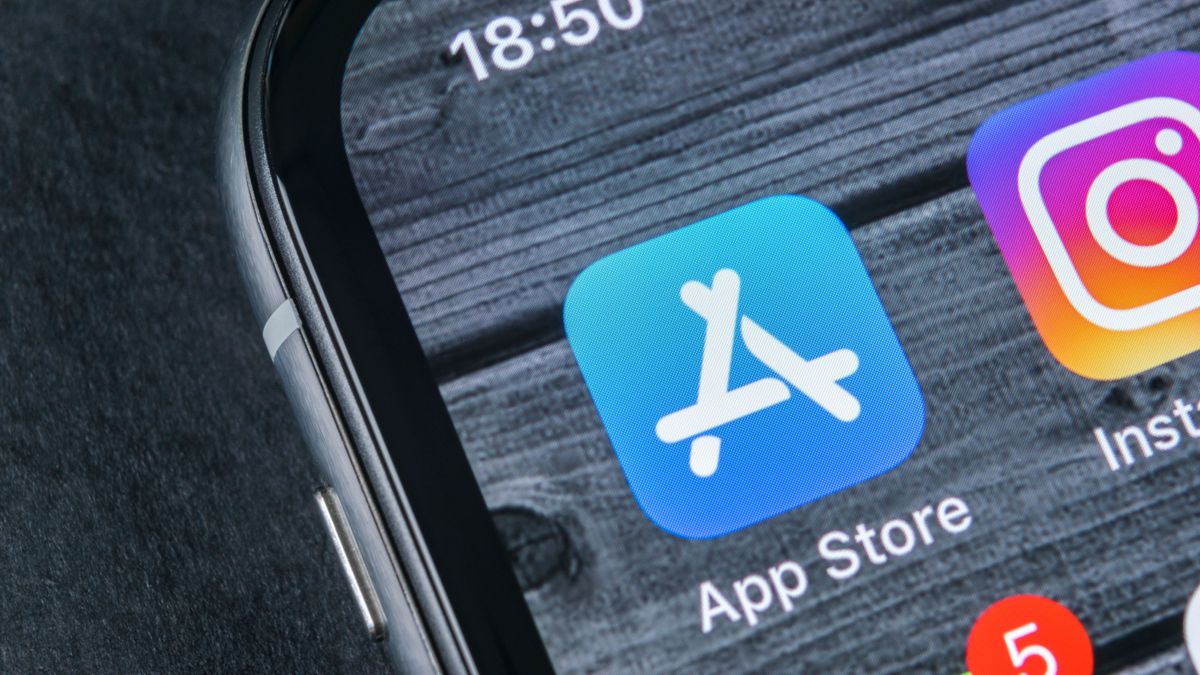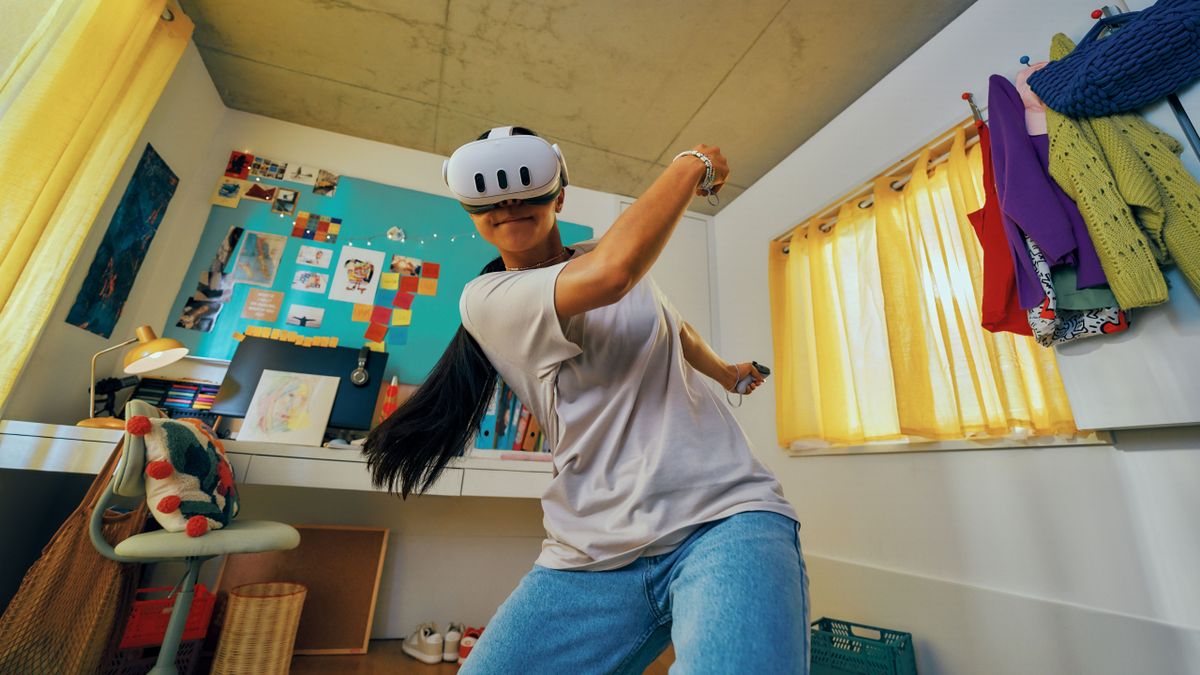Before artificial intelligence takes over the world, it looks like it will beat us at table tennis first: Google has reported on a robot using its DeepMind AI that is now capable of playing ping-pong at an “amateur human level” of performance.
The DeepMind lab is where Google works on some of its most advanced AI technologies, and we've seen plenty of practical experiments from DeepMind before – from AI adding audio to silent videos to the discovery of new materials.
In a new paper, Google researchers say their table tennis robot was able to win 13 out of 29 matches played against humans, and that its success rate varied depending on the skill of the players it was competing against (from beginners to advanced).
“This is the first robot agent capable of playing a sport with humans at a human-level and represents a milestone in robot learning and control,” the researchers write, though they also say this is just a small step forward in the more general field of getting robots to perform useful real-world skills.
Not so fast
View in
The DeepMind team chose table tennis as a project because of the different elements involved, from the complex physics of movement to the hand-eye coordination required to successfully keep hitting the ball.
The robot was trained to focus on each particular type of shot separately, from the backhand to the forehand serve. This training was then combined with a higher-level algorithm designed to choose the type of shot needed on each occasion.
Unsurprisingly, the robot had more difficulty with faster shots (which gave the AI less time to think about what to do), and the researchers are already thinking about how to improve the system, including how to make it more unpredictable in its gameplay.
There is even the built-in ability to learn from the human opponent's strategies and weigh their strengths and weaknesses. The full article is worth reading if you are interested in the challenges of training and scaling AI, and how robots might develop the combination of skills needed to be useful in physical tasks.

